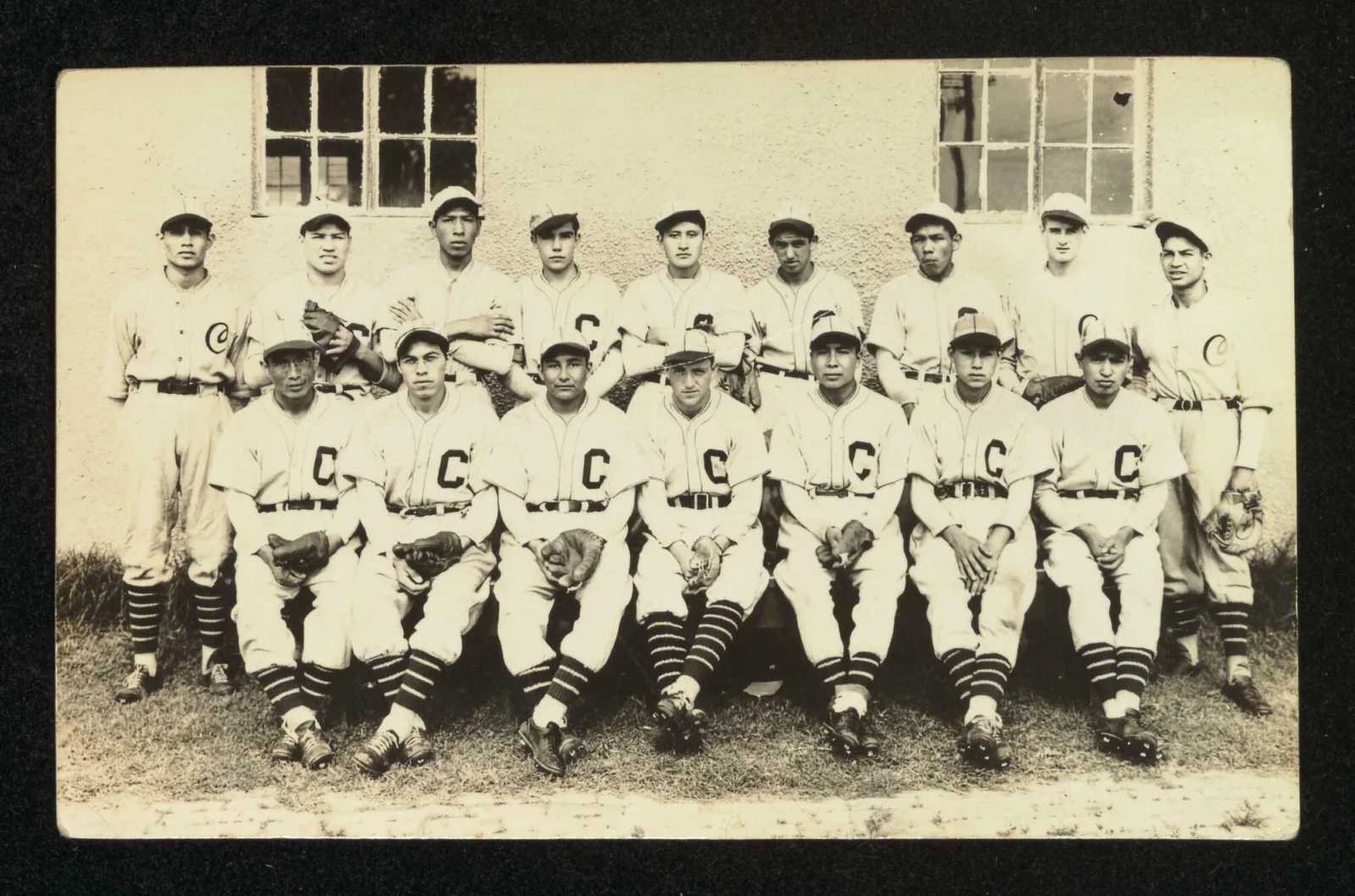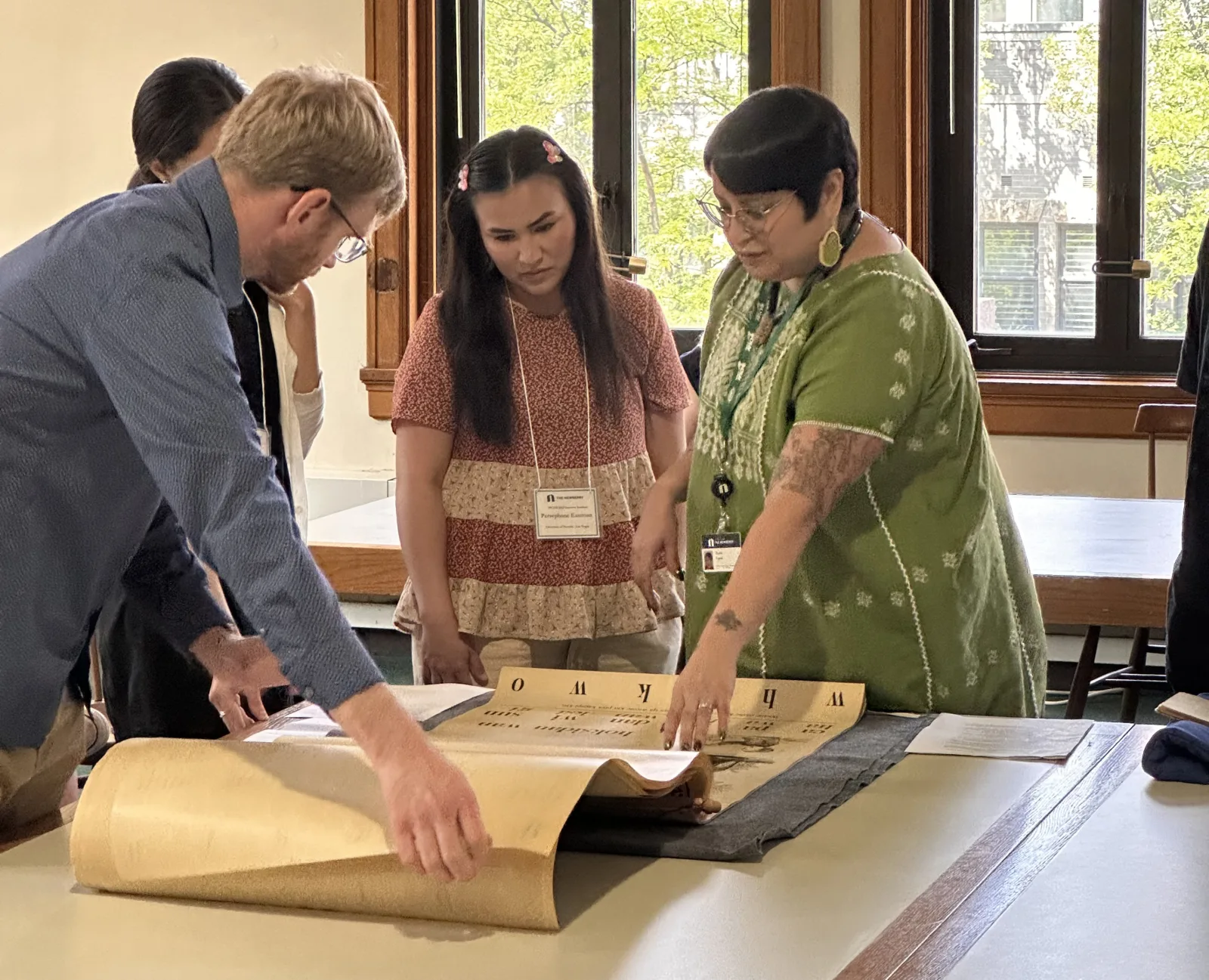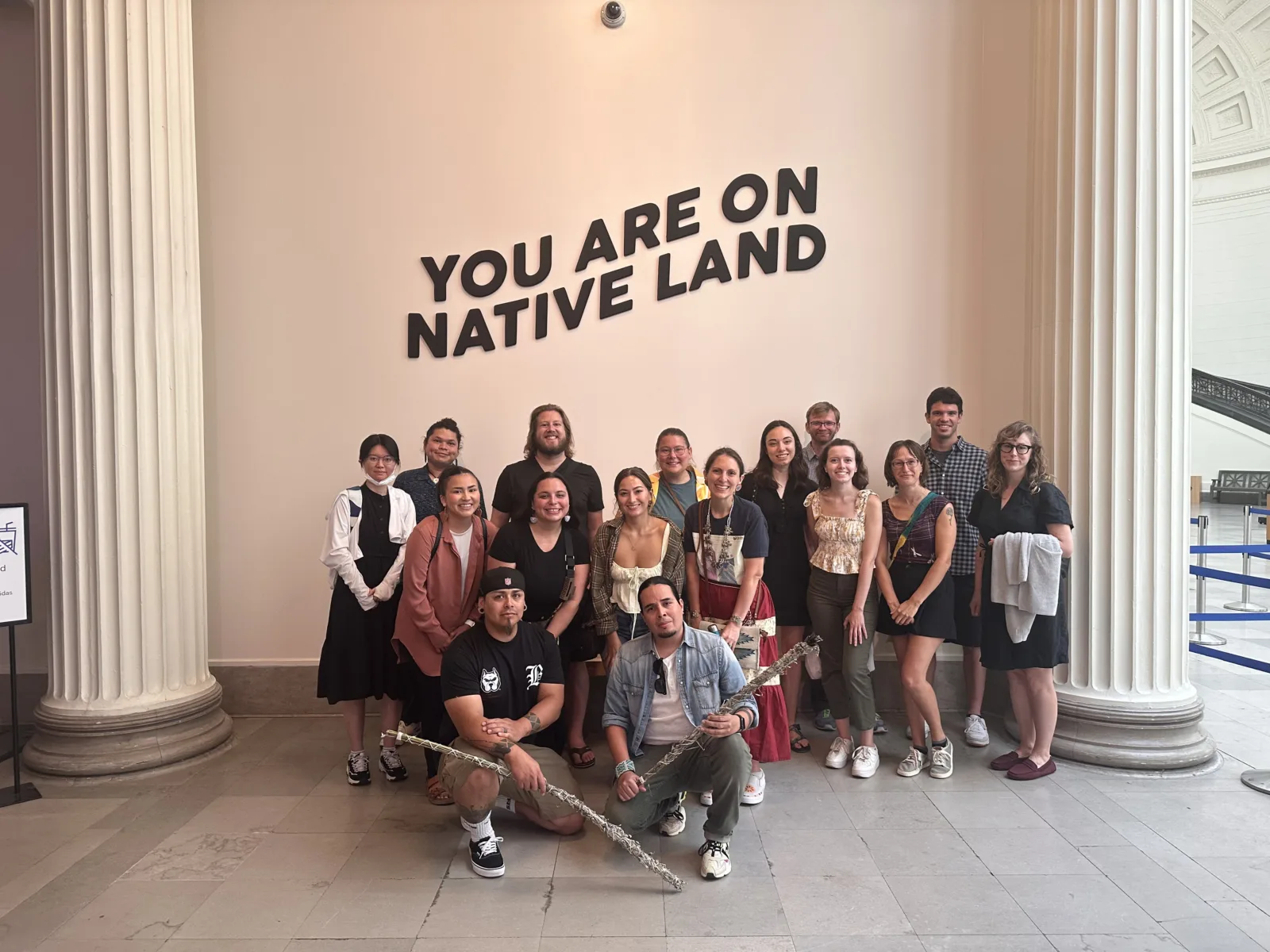For more than fifty years, the Newberry’s D’Arcy McNickle Center for American Indian and Indigenous Studies has sought to promote research and improve the representation of Native peoples in education and writing.
One of the ways it pursues this mission is through the Newberry Consortium in American Indian and Indigenous Studies, or NCAIS (pronounced “EN-case”). Coordinated by the McNickle Center, NCAIS consists of 21 member universities from across the United States and Canada with excellent programs in Native and Indigenous Studies. Throughout the academic year and during summers, the Consortium hosts a wide range of fellowships, workshops, and convenings that bring graduate students to the Newberry to hone their skills and grow as scholars.
The largest of these events is the annual NCAIS Summer Institute, a month-long opportunity that gives graduate students the time and space to discuss pressing issues in Indigenous studies, connect with other students, learn from experts in the field, and conduct their own research in the Newberry’s extraordinary collection.
This year’s Institute, which ran from July 5 to 28, was entitled Indigenizing Schools: Struggles of Native American and Indigenous Education, centering inquiry into Indigenous schooling experiences in Canada and the United States. Led by Dr. Farina King (Diné, University of Oklahoma) and Dr. Kallie Kosc (Oklahoma State University), it presented a window into diverse Native educational experiences, exploring the ways that specific Native Nations approach learning, as well as how schooling has impacted Indigenous communities across the United States and Canada, both past and present.
“The history of Native education is marked by decades of assimilation attempts by settler colonial governments. However, those attempts have consistently been met by resistance from Indigenous communities, the creation of Native-led schooling, and a continual push for sovereignty over the education of younger generations,” explains Dr. Rose Miron, Director of the McNickle Center.

Students spent approximately half of their time discussing assigned readings, engaging with experts at the Newberry and across Chicago, and exploring the Newberry’s collection together. The recently acquired Clara Falls Collection was of particular interest.
Composed of approximately 100 photographs, photographic postcards, and letters, the Clara Falls Collection paints an intimate portrait of the life and schooling experience of one Clara Falls, a Native woman born in 1898 who attended the Sac and Fox Indian School near Stroud, Oklahoma. The items she collected, spanning the period from 1900 to 1933, include views of school buildings, individual portraits, and group photos, including students in traditional regalia as well as a uniformed American Indian baseball team. Many photos identify Falls along with dozens of friends and family members.
Materials like the Clara Falls Collection humanize and personalize the past, while also providing important information for better understanding historical trends and policies, such as the Federal Indian Boarding School system.
Through engagement with the Falls Collection and other selected materials, students learned how to conduct their own research projects in the Newberry’s collection. Research topics ranged widely, from Indigenous pedagogy in contemporary schooling and Haudenosaunee expansion during the seventeenth-century Beaver Wars to Dakota language revitalization and analysis of a notable Federal Indian Boarding School in California.

“The collections were eye-opening to future works,” said one participant, “and the staff was amazing in supporting participants with research and listening to suggestions.”
The Institute culminates in final presentations, an opportunity for students to share their research and receive valuable feedback from their peers, instructors, and Newberry staff members; some choose to execute a sample fellowship application to prepare for the experience of further research, whether at the Newberry or elsewhere
The McNickle Center, as well as many of the programs it runs, are made possible by the generosity of donors. By making a gift to the Newberry, you help us equip our classroom spaces for engaging student experiences, acquire unique materials like the Clara Falls Collection, and connect students with the expertise of our staff and each other.
Thank you for all you do for the Newberry and the students we serve.
